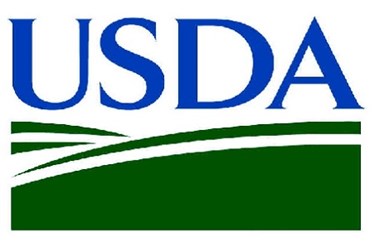Implications Of The Upcoming USDA Strengthening Organic Enforcement Rule
By Allison McLeod, NSF

According to the Organic Trade Association (OTA), organic continues to be one of the fastest-growing sectors in United States agriculture, with over 82% of households stocking organic food in their kitchens. As the industry continues to grow, the United States Department of Agriculture (USDA)’s National Organic Program (NOP) is enacting significant reforms to further protect the integrity of the organic food supply chain and bolster consumer and producer confidence in organic labeling.
The new Strengthening Organic Enforcement (SOE) Rule, which went into effect in March 2023, seeks to reduce fraud in the organic marketplace, improve the USDA’s enforcement protocols, and enhance oversight of organic producers, handlers, and certifiers. Though the rule will require action for many businesses and organizations, these changes will ultimately create a more unified, trusted, and transparent organic supply chain.
Who Does This Ruling Affect?
The implementation date for the SOE Rule is March 19, 2024. Many businesses that historically did not require organic certification will now be mandated to comply. The regulatory text expands the definition of “handlers” of organic products to include exporters, importers, brokers, and traders. With more organizations required to attain organic certification than before, traceability of products through the organic supply chain can be more easily recorded. Reasonable exemptions to certification still exist; for example, operations that sell organic products but whose gross agricultural income from organic sales totals $5,000 or less annually are not required to obtain certification. However, exempt businesses still must comply with rules for producing and handling organic products. Organizations with current organic certification must also enact changes to satisfy the new requirements set by the NOP.
Traceability In A Complex Supply Chain
A key objective of the SOE rule is to improve traceability and reduce organic fraud at critical points in the supply chain through updated recordkeeping and fraud prevention procedures. Electronic NOP Import Certificates will now be required for all organic importers and exporters to the US. This increase in oversight protects the integrity of the organic supply chain. Additionally, certified organic operations will be subject to supply chain traceability audits from certifiers such as Quality Assurance International (QAI), and must develop information-sharing processes to maintain organic integrity from production to retail.
When noncertified intermediary organizations (such as storage facilities or transportation companies) are exempt from organic certification, recordkeeping from the last certified operation to possess or handle the product is required to maintain organic integrity.
Mandatory audit trail documentation records that identify products as organic and an organic fraud prevention plan (OFPP) bolster supply chain transparency and decrease occasions where fraud could occur.
Adapting Practices To A Technology-Driven Future
Technological advances in the industry continue to improve the quality of organic products and enhance the opportunity for innovation across the supply chain. Another component of the SOE final rule improves how information about organic operations is generated and shared. All organic certifiers will be required to generate standardized certificates of organic operation with the USDA’s Organic Integrity Database (INTEGRITY), use a web-based reporting tool, and keep operation profiles updated. This provides all certifiers and operations with access to streamlined information and the most accurate and current data to validate organic products, ingredients, and supply chain operations.
The organic supply chain is complex and involves many different contributors. When our industry relies on INTEGRITY, certifiers, and organizations in the organic supply chain benefit from an accessible and standardized approach to reporting and data-sharing, which leads to a reduction in fraud.
A Plan For Success
According to the OTA, organic food and non-food sales continue to grow yearly, with estimated sales in 2022 reaching over $67 billion. This annual retail increase indicates the SOE ruling will substantially affect many critical roles within the organic food supply chain.
As businesses prepare to comply with the SOE ruling in March 2024, importers, exporters, brokers, traders, and certifiers must take the time to understand how this rule affects our current practices and the necessary steps needed to adapt to the updates. Third-party certifiers such as NSF fully understand the SOE final rule and how it will impact businesses in the organic supply chain. For assistance with certification and implementing the updated requirements of the SOE rule, find a certifier that fits your unique needs.
Though the organic supply chain is complex, each component of the SOE rule streamlines critical information and protects the integrity of affiliated businesses from farm to marketplace — ensuring that consumers continue to trust organic labeling and invest in the industry.
About The Author
Allison McLeod is the technical scheme lead for Quality Assurance International (QAI), an NSF company and a leading provider of organic certification services worldwide. She has over two decades of experience in the organic industry, including working in account management, and technical review, and as an accredited inspector with the International Organic Inspectors Association (IOIA). McLeod has a Master of Jurisprudence (MJ) in global food law from Michigan State University College of Law. As a USDA-accredited certifying agent, QAI’s programs verify organic integrity at each link of the product supply chain, helping to assure compliance with organic standards for agricultural producers, food processing facilities, traders, distributors, retailers, and, ultimately, consumers.
